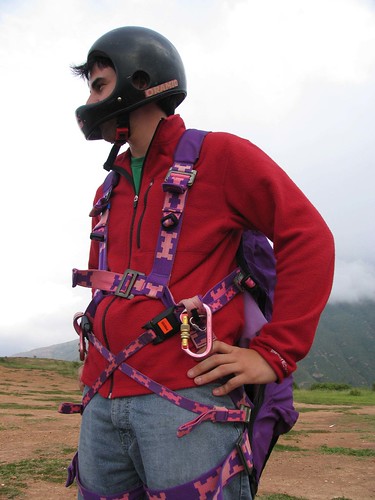Manuel from Santana
Brooke was sitting off to my right, getting a massage under a thatched hut on Playa Blanca. The exchange went kind of like this.
“Beautiful here, no?” The dark-skinned man was standing in front of me, a fanny pack around his waist.
“Sure is.” I didn’t want to encourage him too much. I just wanted quiet.
“Where are you from? You look like you have Latino roots.”
“I don’t.”
“Where are you from?”
“The United States.” I was looking past him as I spoke.
“Good people, Americans. Them and Italians actually buy stuff here. Germans, they don’t buy anything. Nothing. A bottle of water and that’s it. No jewelry, no nothing. And they get mad at us for selling.” He shook his head at the thought and settled onto his haunches, squatting.
We were staying at Campamento Wittenberg, a makeshift group of shacks with hammocks run by a Frenchman named Gilbert. His Colombian wife, Ana, told us that there were 280 vendors working Playa Blanca at any given time.
“Oh, yeah?” This guy wanted to talk. I had nowhere to go. I might as well let him.
“My name is Manuel.”
“Ian.”
“What do you think, Ian?” He pulled out a thick tangle of necklaces from his pouch.
“I’ve got tiger’s eye, Asian star, pearl …”
He faded out. The necklaces came one at a time, slowly. He ignored my disinterest and went through half of his pack. Finally, I’d had enough.
“Sorry, buddy. I don’t wear necklaces. I don’t have any money to buy one, either.”
“Okay.” He sat there, thumbing through his necklaces. A pause.
“You two married?” He looked at Brooke.
“Yes.”
“You have kids?”
“No.”
“I’ve got two. One’s three, the other’s turning two this week. Two boys.” He smiled.
Ana told us that many of the vendors’ children stop going to school in 1st or 2nd grade. She said they don’t want to go, and the parents don’t make them.
“What are there names?”
“Jacobo and Jacondo. They’re different names.”
“Where did those names come from?”
“From a book. One time, I met an Italian guy whose name was Jacobo, and he bought from me because my son had his same name.”
“I have nine siblings, too. They live all over the place, now that Mom died. Two live in Panamá, even. Families fall apart when mothers die.”
“ ”
More thumbing through the necklaces.
“Where do you live?” I needed to ask him something. He wasn’t going to leave.
“In Santana, a village on the other side of the island. It’s a two-hour walk to the beach. Four hours each day.”
Ana told us that basically the entire village of Santana works on Playa Blanca. Although some walk, there is a special bus just for villagers that costs 1,000 pesos each way.
“That’s a lot of walking. Is the business here that good?”
“Huh?”
“Do you sell enough?”
“Not really. Sometimes my wife and I don’t have enough to eat. Sometimes we sit down for dinner to nothing.”
Ana, a brown-skinned woman, told us the morenos, as black people are known in Colombia, don’t like to work or learn to improve themselves. She said the vendors spend all their money gambling dominoes and drinking rum.
“It’s hard here, huh?”
“Yes.”
He has all of the necklaces on his wrist.
“You don’t want a necklace? Five thousand pesitos.”
“No, sorry.”
“ ”
“Why is that all you guys sell the same things?”
“That’s all there is to sell. We get them in Santana.”
“Is there competition?”
“Sure, but it’s friendly. I don’t want to kill anyone over 5,000 pesos.”
“It must be hard. Most tourists don’t come here hoping to shop. They just want to come to a quiet beach, and then there are 50 guys trying to sell them stuff.”
“I know the tourists want to relax. We have to make a living.”
“But maybe if you changed your tactics—have a table on the beach instead of harassing the people who come …”
“ ”
“It’s just that not everyone wants to buy.”
“But they have money, and we don’t.”
I couldn’t keep this up much longer.
“Do you leave the island much?”
“I don’t have the chance to, hardly ever. You sure you don’t want this one? It’s real pearl, from the river.”
It was plastic, I think.
“No, thanks. Sorry.”
“You don’t want even one? Not as a keepsake of Playa Blanca?”
“No, thanks. Sorry.”
“You sure?”
“Yeah. Sorry.”
He got up, looked down the beach, and spied a boat entering the bay. He starting walking toward it down the shore, and I lay back, tired.


1 Comments:
I can feel your pain! On the other hand, you have to appreciate the spirit and desire of the people in their pursuit of happiness... Glancing eyes to the horizon with endless hope for opportunity!
Love, Paul
By Anonymous, at 2:16 PM
Anonymous, at 2:16 PM
Post a Comment
<< Home